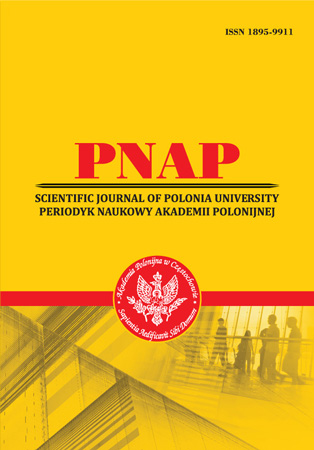SOCIO-CULTURAL DIMENSIONS OF MODERNITY IN THE CONTEXT OF COGNITIVE PRACTICES
Abstract
The article highlights the essence of the new reality which is the basis of global transformations of the society and the entire world order. The new social system is in the focus of attention for politicians, sociologists, economists, and philosophers, as previous assessments of the development prospects (“new industrial”, “post-industrial”, “information”, “post-economic” and other societies) have proved to be imperfect from the standpoint of the real course of events. In recent decades, such concepts as “social postmodernism”, “new order”, and “globalism” have become widespread. But they also require revision and critical rethinking. Due to these circumstances, there is a problem of identifying opportunities and the role of thinking and knowledge in determining the essence and content of modernity. After all, changes in the society and technological innovations require the study of social transformations, which are the driving force and source of energy of modern civilization. The peculiar feature of modernity is its dynamism, due to which the complexity and unpredictability of social development is created. Today, it acts as a complex self-developing system characterized by openness and exchange of knowledge and information energy. Its problem can be understood through synergetics, since its mental reflections have specified understanding the mechanisms of modern development. It should be borne in mind that when interpreting synergetics as a theoretical description of self-developing systems, they get rid of one-sidedness that arises when the links between the synergetic paradigm and the system approach are not clearly understood. It is in these connections that synergetic ideas about the meanings of knowledge, education, and learning can be incorporated into the modern picture of the world.
References
2. Egorov, D.G. (2006). Esli paradigmy nesoizmerimy, to pochemu oni vse-taki menyayutsya? [If the paradigms are incommensurable, then why are they still changing?]. Voprosy filosofii. Issue 3. [in Russian]
3. Filosofiya v sovremennoj kulture: novye perspektivy (Materialy «kruglogo stola»). (2004). [Philosophy in modern culture: new perspectives (Materials of the “round table”)]. Voprosy filosofii. Issue № 4. [in Russian]
4. Fromm, E. (1990). Imet ili byt. [To have or to be]. Moscow: Progress. [in Russian]
5. Hegel, G.W.F. (1977). Filosofiya duha [Philosophy of Soul]. Entsiklopediya filosofskih nauk. Vol. 3. Moscow: Mysl. [in Russian]
6. Hegel, G.W.F. (1993). Filosofiya istorii. [Philosophy of History]. SPb.: Nauka. [in Russian]
7. Hramova, V.L. (2011). Kulturologicheskie obrazy nauki v postpozitivizme. [Culturological images of science in postpositivism]. Sofiia. Kulturolohichnyi zhurnal. Issue № 11. [in Russian]
8. Jung, C.G. (1997). Soznatelnoe i bessoznatelnoe. [Сonscious and unconscious]. SPb.: Aletejya. [in Russian]
9. Medushevskij, A.N. (2009). Kognitivno-informacionnaya teoriya kak novaya filosofskaya paradigma gumanitarnogo podsoznaniya. [Cognitive information theory as a new philosophical paradigm of the humanitarian subconscious]. Voprosy filosofii. Issue №. 10. [in Russian]
10. Medushevskij, A.N. (2011). Znanie o proshlom v sovremennoj kulture (materialy kruglogo stola). [Knowledge of the Past in Modern Culture (Round table materials)]. Voprosy filosofii. Issue № 12. [in Russian]
11. Meskov, V.S., Mamchenko, A.A. (2010). Mir informacii kak trinitarnaya model Universuma. Postneklassicheskaya metodologiya kognitivnoj deyatelnosti. [The World of Information as a Trinitarian Model of the Universum. Postnonclassical Cognitive Methodology]. Voprosy filosofii. Issue № 5. [in Russian]
12. Nejsbit, D. (2003). Megatrendy. [Megatrends]. Moscow: OOO «Izdatelstvo ACT»: ZAO NPP «Ermak». [in Russian]
13. Neklessa, A.I. (2001). Transmutaciya istorii. [Transmutation of History]. Voprosy filosofii. Issue № 3. [in Russian]
14. Orudzhev, Z.M. (2006). Sposob myshleniya epohi i princip apriorizma. [The way of thinking of the era and the principle of a priori]. Voprosy filosofii. Issue № 5. [in Russian]
15. Orudzhev, Z.M. (2009). Sposob myshleniya epohi: Filosofiya proshlogo. [The way of thinking of the era: the philosophy of the past]. Moscow: Editorial URSS. [in Russian]
16. Struktura nauchnyh revolyucij. [The Structure of Scientific Revolutions]. Moscow: AST. [in Russian]
17. Tulchinskij, G.L. (2006). O prirode svobody. [About the nature of freedom]. Voprosy filosofii. Issue № 4. [in Russian]
Abstract views: 135 PDF Downloads: 152







